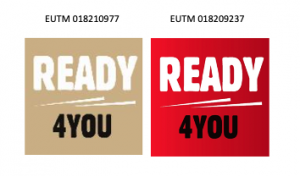BACKGROUND TO THE DISPUTE
On 11 March (Case T-432/21) and 13 March 2020 (Case T-367/21) the applicant, Sushi&Food Factor sp. z o.o. sp.k, applied to the European Union Intellectual Property Office (EUIPO) for registration of the following figurative signs for the goods and services in Classes 29, 30 and 43:

By two decisions of 29 September 2020 (Case T-367/21) and 8 October 2020 (Case T-432/21), the examiner rejected the applications for registration of those marks on the basis of Article 7(1)(b) and Article 7(2) of the EUTMR.
On 30 November 2020 (Case T-367/21) and 7 December 2020 (Case T-432/21), the applicant lodged two appeals with EUIPO against the examiner’s decisions.
In that regard, the Board of Appeal dismissed the appeals on the ground that the semantic content of the marks applied for only conveyed a promotional message concerning the characteristics of the goods and services, which was laudatory and advertising and therefore only indicated positive characteristics of the goods and services applied for.
The applicant Sushi&Food Factor sp. z o.o. sp.k appealed those decisions, which were dismissed in their entirety by decision of the Court of Justice of the European Union dated 14 September 2022.
DECISION OF THE COURT OF JUSTICE OF THE EUROPEAN UNION
First, the Court found that the words ‘ready 4you’ indicated the positive characteristics of the goods and services applied for, namely that they are ready to eat or easy to prepare, or that they are packaged in such conditions that they can be consumed immediately.
Therefore, the Court finds that the semantic content of the marks applied for only conveys a promotional message relating to the characteristics of the goods and services, which, without indicating specific characteristics, in particular of the services in question, has a laudatory and advertising character, and therefore only indicates positive characteristics of the goods and services applied for. In those circumstances, it is considered that the marks applied for are devoid of distinctive character.
The Court has also considered that the marks applied for are no more than an ordinary advertising message, do not possess any originality, do not require any effort of interpretation and do not trigger any cognitive process in the relevant public.
In the light of the foregoing, the Court of Justice of the European Union dismisses the actions and upholds the contested decisions.


 Español
Español Deutsch
Deutsch